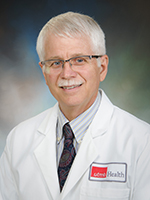NIH T32 Training Program: Training Physician-Scientists in Emerging Infectious Diseases
Program Information
Program Overview
Two years of translational research training under the mentorship of more than 25 accomplished MD and PhD faculty members Scientific and career mentorship through a structured team science framework Instruction in key areas including:
- Research design, data analysis, and biostatistics
- Field epidemiology and outbreak investigation
- Clinical and research biocontainment and biosafety
- Responsible conduct of research
- Scientific writing and grant preparation
- Managing a dual clinical-research career
Training and Mentorship
- Trainees choose their research focus and primary mentor
- Intensive career mentorship through the individualized Multidisciplinary,Interprofessional Mentorship Team (iMIMT)
- Opportunities for international research collaboration
- Support for securing an NIH Physician-Scientist Career Development Award
- Mentorship in transitioning to an independent faculty position
Eligibility and Application
- Open to physicians completing or who have completed an ACGME-certified residency or fellowship
- Applicants must be U.S. citizens or permanent residents
- One trainee per year will be selected for a two-year appointment
- Position: 2-year appointment as Instructor at UTMB; Protected research time with limited clinical responsibility (80% research, 20% clinical)
- To apply, candidates should send a CV and a one-page cover letter detailing their experience, research interests, and career goals to Dr. Peter Melby
.png?sfvrsn=ef58dc55_1)
.png?sfvrsn=715cdc55_1)




